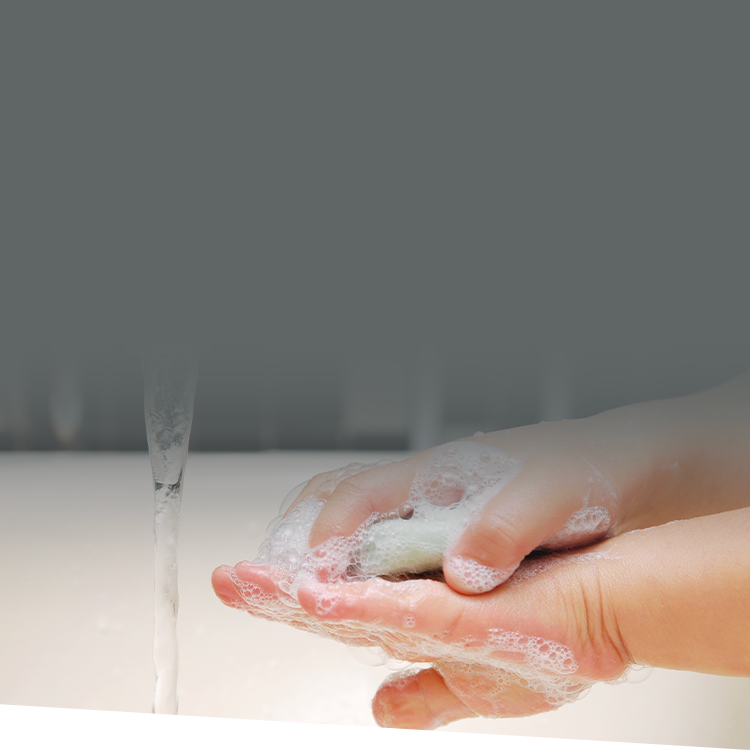As you head into the new school year, you may be concerned about the most recently identified infectious disease—monkeypox. As a private school leader, you may wonder what exactly monkeypox is, precisely the signs and symptoms of the disease, how your school should handle an outbreak, and more.
We recently sat down with Lisa A. Smith, M.D., Medical Director of COVID Services for One to One Health and Assistant Professor in Surgery and Pediatrics at the University of Tennessee.
Here's what she had to say.
What is monkeypox?
Monkeypox is an infectious disease. The first human case of monkeypox was recorded in 1970. Before the 2022 outbreak, monkeypox had been reported in people in several central and western African countries. Currently, there are 17,432 confirmed cases in the U.S.
"Monkeypox can look like chickenpox—you can physically see ‘pox’ on the infected individual," Smith said. "The pox is very painful and usually occurs after a fever and swollen lymph nodes (lymphadenopathy). Each pox begins as a bump, transitions to an ulcer, and later crusts and falls off. It takes anywhere from two to four weeks for this cycle to be completed. The person is infectious that entire time."
Who can contract monkeypox?
Monkeypox can spread to anyone through close, personal skin-to-skin contact, including direct contact with monkeypox rash and scabs, or through contact with bodily fluids from an infected individual. It can also be spread by touching objects, fabrics (such as clothing, bedding, and towels), and surfaces touched by someone with monkeypox. "There is a stereotype that only certain genders can contract monkeypox," Smith said. “That is not true. It is just an infectious disease that can spread anywhere it has that opportunity."
How should a school prepare for monkeypox?
"It is imperative to prepare for the worst and hope for the best," Smith said. "Schools need to have a plan if a case develops. We've all had fire drills and active shooter drills—and now COVID-19 protocols. It doesn't make sense that a school doesn't have a plan for handling an infectious disease looming in our communities.”
Here are some things to consider as you develop a plan to prepare for a monkeypox outbreak.
Create a protocol that outlines steps to take. Explicitly focus on handling the affected students, containing the spread, and communicating with your constituents.
Identify how you will:
- counsel students (those who are infected as well as those in close contact) and their families;
- handle academics for students who can’t attend class during their infectious period;
- manage their return after the isolation period;
- prevent the spread; and
- communicate the occurrence with the rest of the student body.
How can schools mitigate the spread of monkeypox?
"It's important to be prepared, particularly in close-contact circumstances like sports, especially wrestling," Smith said. "This may be the time to revisit the good hygiene practices we learned from the COVID-19 pandemic. Basic principles like handwashing are fundamental."
Smith continues, "Soap and water do a great job. There are no special cleaning protocols that need to be instituted. Just encourage standard hygiene."

Tune in to live webinars every week during the school year to get specific, research-backed insight you can immediately apply at your school.
What should families know about monkeypox?
"If you are infected with monkeypox, it usually takes from 5 to 21 days for the first symptoms to appear. The Centers for Disease Control and Prevention (CDC) recommends that those who are in close contact with an infected individual should be vaccinated, and need to be observed. The first symptoms of monkeypox include a high temperature," Smith said. "If a temperature and no other symptoms are present, that doesn't mean they should be kept out of school, but be alert. Any contacts should be observed for the three-week incubation period, and there is no need to be tested unless a lesion is present."
If monkeypox can be contracted through fabrics, are there additional precautions for boarding schools?
"Boarding schools have an additional problem in managing monkeypox because of the linen services," Smith said. "These schools should have a plan in place to protect the workers who clean the area where the infected student resides, and who work in the laundry, with attention to using personal protective equipment (PPE)."
What should the school nurse do if a student or staff member visits the health office and they suspect the individual has monkeypox?
"The most important step is to cover the lesion (using gauze and tape or large Band-Aids) and send the individual home—instructing them to be taken directly to their doctor for evaluation and testing. The local health department would manage the tests," Smith said."Schools should confirm where testing is available, so parents can be informed," Smith added. "Confirm with the health department what the county protocol is for testing. Then, provide that information to the infected child’s parents or guardians for guidance."
Does the monkeypox vaccine help?
"If you have been exposed to monkeypox and can get a vaccine, that might eliminate the symptoms. Experts believe the vaccine can help protect people against monkeypox when given before exposure to the virus, reducing the risk of infection," Smith said. "Vaccines provide protection. The smallpox vaccine is thought to provide some protection because the monkeypox virus is closely related to the virus that causes smallpox."
Would you share your final thoughts about how schools can prepare for monkeypox?
"School leaders should stay up to date with vaccine recommendations, staying in touch with their local health department," Smith said. "Monkeypox is not as easy to contract as chickenpox or COVID-19. However, it is imperative to have a plan, even if you never have to execute it. It's much better to be prepared than to figure out what to do during a crisis."



